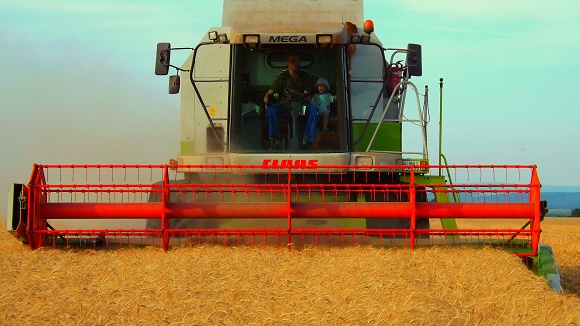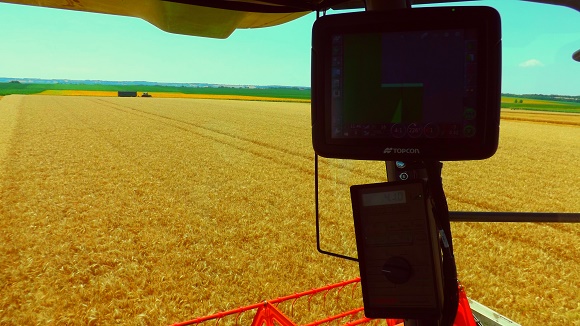-
About
- Our Work
- Get Involved
- Stay Updated
You are creating a miracle, Erno! Nope, just bread for the table.
The short dialogue above ensued between my friend István Dudás and I during the autumn wheat harvest season. István who visited me with his children in the middle of the harvesting period does not relate to agriculture professionally, but he is one of the few people who respect us farmers for our profession. Because this is not only a work; it is a mission, inspired by God.
 Why did I start with the cited dialogue? In the introduction of the June issue of the online journal Agroforum, Dr. László Bódis once again emphasized the important issue; More respect for farmers, as farming is one of the few professions supporting life and living by, feeding the world.
Why did I start with the cited dialogue? In the introduction of the June issue of the online journal Agroforum, Dr. László Bódis once again emphasized the important issue; More respect for farmers, as farming is one of the few professions supporting life and living by, feeding the world.During my professional internship in The Netherlands in 2010 I saw this message on most agricultural machinery: In the Netherlands ordinary peasants are genuinely respected, not like in our country. I once read an old text, written 100 years ago that showed the lack of respect for Hungarian peasants in these times in contrast to many developed Western countries, perhaps nothing has changed. Will it ever change at all?
Agriculture is a never-ending cycle, especially for farmers whose livelihood depends on it and giving up, is not an option even if it were possible. I come from a family whose great-great-grandfather before I had pushed the plow behind the horses into the Hungarian soil, swung the scythe and my great-great-grandmother sowed from her apron and then harvested with her hands. So permit me to say that my family has nourished the world for generations.
 One of the main goals of a serious-minded farmer is to get a higher yield in whatever crop he or she cultivates. This goal is not an end in itself but a means to an end- which is to generate income to cover the basic costs of the farm enterprise.
One of the main goals of a serious-minded farmer is to get a higher yield in whatever crop he or she cultivates. This goal is not an end in itself but a means to an end- which is to generate income to cover the basic costs of the farm enterprise.Looking at todays farming trends in Hungary, with a focus on this years wheat harvest in Tabajd in Fejér County one can say that, the variations in precipitation resulted in different yields in the various areas in this part of the country. A recent study further buttresses this observation with detailed empirical findings.
Although, there have been a few questions on my mind begging to be considered; what is cultivating worth? Should farmers focus on monoculture or diversify their production? The cultivation of several plants can be an advantage because we can expect more resources from them, our crop rotation system will be more diversified and the environment can benefit from diversified crops. The disadvantage of growing several crops, however, is the issue of storage and the cost that comes with it.
This blog post is a brief reflection inspired by a full report (see here) that was originally published in agroforum.hu in Hungarian.
Picture credit: Ern? Tamás Zsár and colleagues
About the author
Author's recent posts
More posts from authorRelated Posts
Comments
No comments made yet. Be the first to submit a commentBy accepting you will be accessing a service provided by a third-party external to https://www.ypard.net/
Get in touch
Email: [email protected]
YPARD Global Coordination UnitHosted by AGRIDEA and the Czech University of Life Sciences Prague
Lausanne, Switzerland and Prague, Czech Republic - Our Work

 Why did I start with the cited dialogue? In the introduction of the June issue of the online journal
Why did I start with the cited dialogue? In the introduction of the June issue of the online journal  One of the main goals of a serious-minded farmer is to get a higher yield in whatever crop he or she cultivates. This goal is not an end in itself but a means to an end- which is to generate income to cover the basic costs of the farm enterprise.
One of the main goals of a serious-minded farmer is to get a higher yield in whatever crop he or she cultivates. This goal is not an end in itself but a means to an end- which is to generate income to cover the basic costs of the farm enterprise.